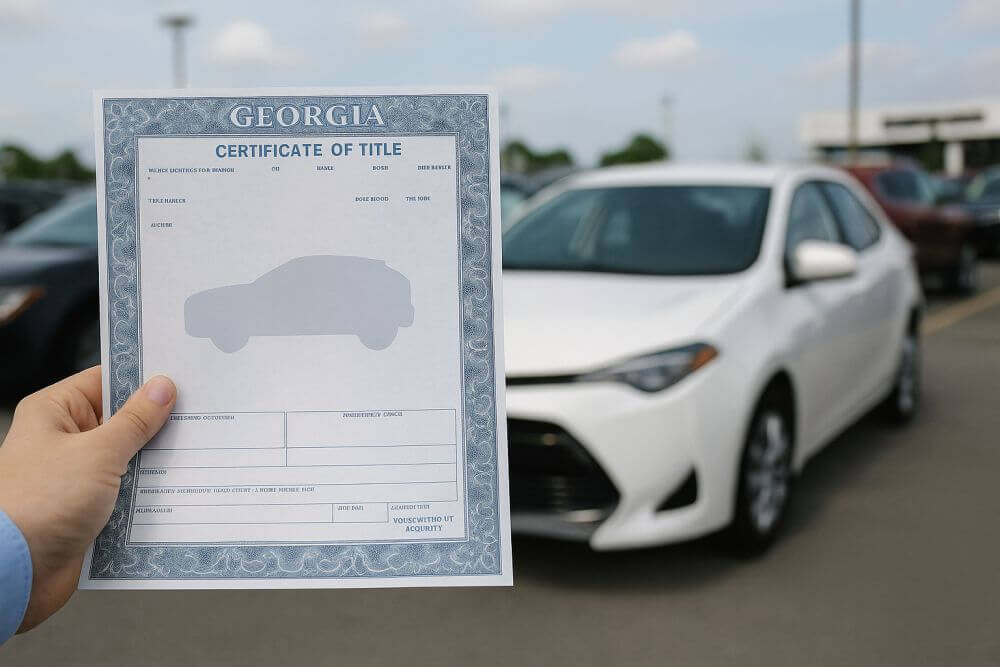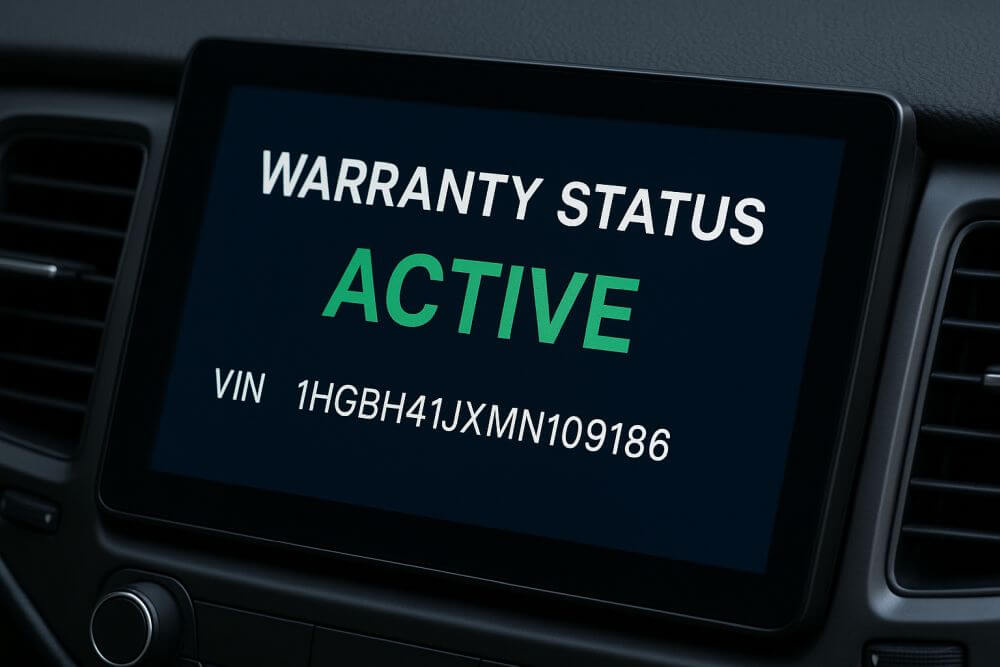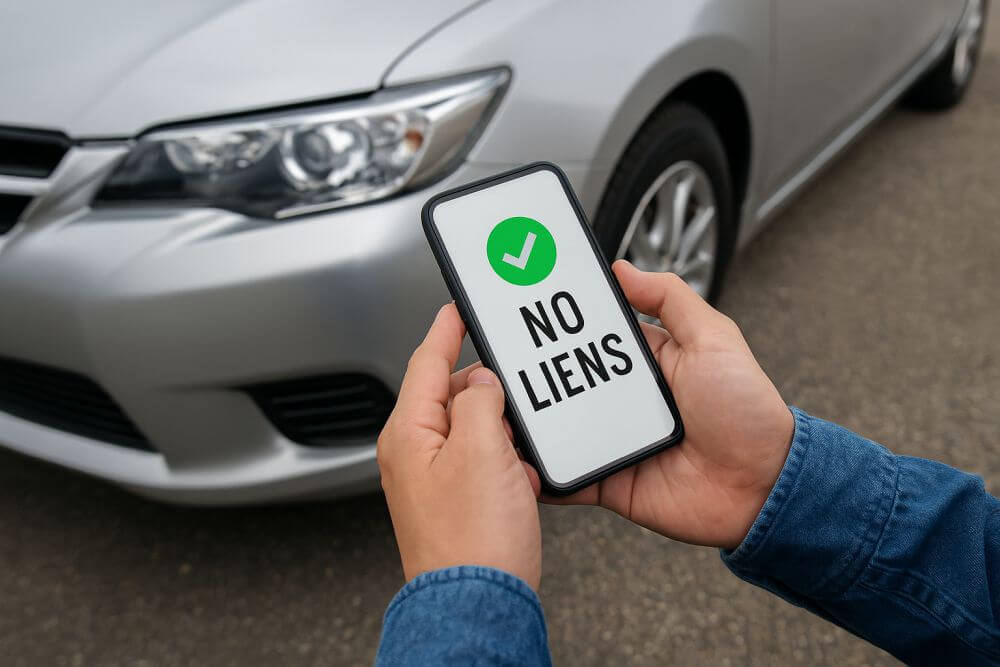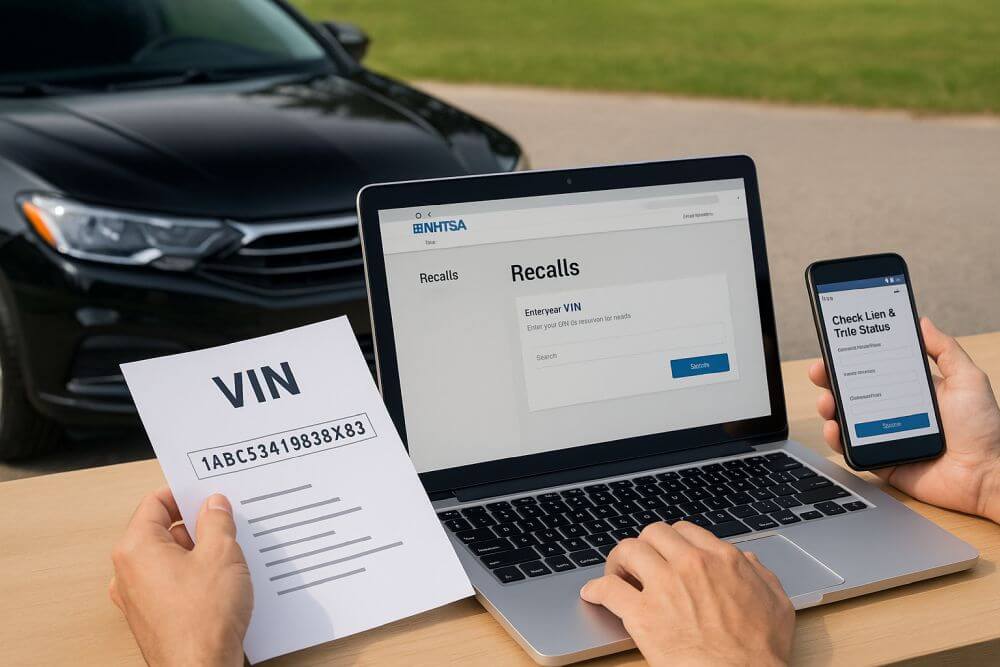When buying a used car in Georgia, checking the vehicle’s title history is one of the most important steps you can take. The title history reveals crucial information about the car’s past — including ownership changes, accident or damage records, title brands (such as salvage or rebuilt), and potential liens.

Understanding a vehicle’s title history can protect you from fraud, hidden problems, and unexpected expenses after purchase. Here’s everything you need to know about how to check title histories in Georgia and why it matters.
Why You Should Check a Car’s Title History
A vehicle’s title history acts like a permanent record. It helps you uncover red flags that a seller might not disclose, including:
- Salvage or rebuilt titles: Indicates the vehicle was declared a total loss by an insurance company and rebuilt.
- Flood damage: Vehicles damaged by flooding may have long-term electrical or structural issues.
- Odometer rollbacks: Title records can reveal discrepancies that point to potential odometer fraud.
- Past accidents or severe damage: Helps you assess the true condition of the vehicle.
- Lien records: Shows if the vehicle is fully paid off or if a lender still has a legal claim.
Verifying the title history gives you peace of mind and bargaining power when negotiating with the seller.
How to Check a Title History in Georgia
Step 1: Locate the Vehicle Identification Number (VIN)
The VIN is a unique 17-character code that acts as the car’s fingerprint. You’ll find it:
- On the dashboard near the windshield (driver’s side)
- Inside the driver’s door frame
- On the vehicle title or registration document
Never rely only on the VIN listed in an advertisement — inspect it directly on the car to ensure it matches the paperwork.
Step 2: Use the Georgia Department of Revenue (DOR) Resources
The Georgia Department of Revenue (DOR) oversees vehicle titles in the state. While they do not provide a free, fully detailed online title history report to the public, they do offer vehicle title status checks through local county tag offices.
You can request a title history by visiting or contacting your county tag office. You will need to provide the VIN and may be required to complete specific forms or pay a small fee for an official record.
Visit the Georgia DOR website to find contact details for your local tag office: Georgia DOR County Tag Offices
Step 3: Order a Vehicle History Report
For a more comprehensive overview, you can purchase a vehicle history report from trusted third-party providers. These reports typically include:
- Title and registration history across all states
- Reported accidents and damage
- Odometer readings and rollbacks
- Salvage or rebuilt title designations
- Lien and loan information
- Recalls and service records
Providers like VinCheckPro offer free and paid options to access detailed vehicle history using the VIN. These reports compile data from multiple sources, including insurance companies, DMVs, and salvage auctions.
Step 4: Check for Liens Separately if Needed
If you’re particularly concerned about liens, ask the seller to provide proof of lien release or a current title showing no lienholder. You can also confirm lien information through a Georgia county tag office, as lien details are part of the official title record.
Step 5: Verify Seller Documents
Always review the physical title document carefully. In Georgia, the title should clearly show if there is a current lien or if it’s marked as “clear.” The seller’s name must match their ID, and there should be no erasures or suspicious alterations.
Avoid sellers who hesitate to show the title or provide incomplete paperwork — these are major red flags.
Additional Tips for Buyers in Georgia
- Inspect the vehicle in person before paying or signing anything.
- Request a bill of sale to document the transaction clearly.
- Cross-check title and registration documents to confirm consistent information.
- Beware of very low prices, which can indicate hidden title issues or potential scams.
Final Thoughts
Checking a vehicle’s title history in Georgia is an essential step to protect yourself from fraud and ensure that you’re making a smart investment. By reviewing the title, running a VIN check, and obtaining an official history report, you gain a comprehensive view of the car’s past and avoid costly surprises.
Before you commit to any used car purchase, run a free VIN check with a trusted service like VinCheckPro to uncover hidden issues and verify the vehicle’s background. Taking these precautions can save you time, money, and headaches — and help you drive away with confidence.
Frequently Asked Questions
How do I find the VIN on my vehicle?
The VIN is usually located on the driver’s side dashboard, visible through the windshield. It can also be found on the driver’s side door frame, engine block, or vehicle registration documents.
Can I get a title history report for free?
While some services charge for comprehensive reports, you can access basic title history information for free using tools like VinCheckPro’s VIN decoder.
What should I do if the title history reveals a salvage title?
If a vehicle has a salvage title, it indicates significant damage or repair history. Consider having a trusted mechanic inspect the vehicle and weigh the potential risks before proceeding with the purchase.
How often should I check my vehicle’s title history?
It’s advisable to check your vehicle’s title history before purchasing it and periodically during ownership, especially before selling the car or if you suspect any discrepancies.
What other vehicle history checks should I consider?
Besides a title history check, consider obtaining a full vehicle history report, which includes accident history, maintenance records, and any recalls or safety notices.


